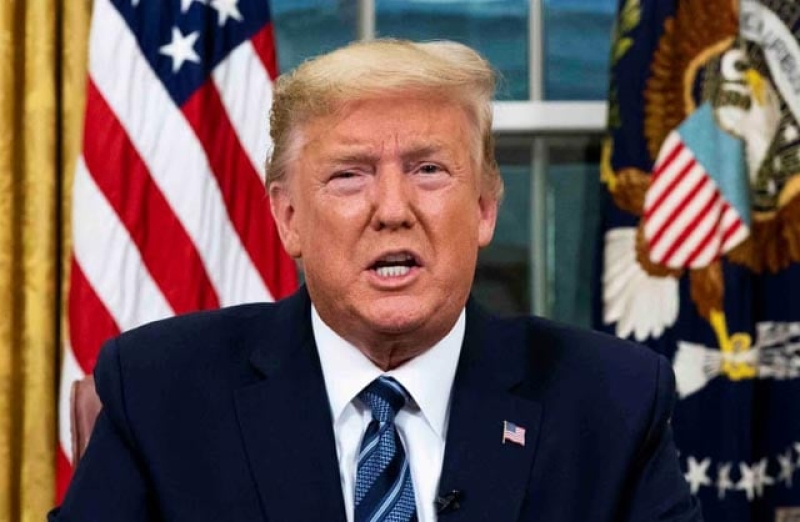- Bangladeshi Expats Cast 4.58 Lakh Postal Votes |
- IMF Forecasts Bangladesh GDP to Rebound to 4.7% in FY26 |
- Arab Allies Urge Restraint as Trump Presses Iran Talks |
- EC asks printing presses not to print election posters |
- Protect your votes, conspiracies still on: Tarique to voters |
Trump to Impose 25% Tariffs on Steel and Aluminum

US President Donald Trump announced on February 9 that he will impose a new 25% tariff on all steel and aluminum imports, expanding upon existing duties as part of his ongoing trade policy overhaul. Speaking to reporters aboard Air Force One en route to the Super Bowl in New Orleans, Trump revealed that he would formally announce the new tariffs on February 10.
In addition, he stated plans to introduce reciprocal tariffs by Tuesday or Wednesday, matching the tariff rates levied by other countries. “If they charge us, we charge them,” Trump said of the reciprocal tariff strategy.
The largest sources of US steel imports include Canada, Brazil, Mexico, South Korea, and Vietnam. Canada is also the dominant supplier of primary aluminum, providing 79% of US imports. In response to Trump’s tariffs, Canadian officials, including Innovation Minister Francois-Philippe Champagne, emphasized the importance of Canadian aluminum for key US industries like defense and auto manufacturing.
Trump also confirmed that while Japan’s Nippon Steel would be allowed to invest in US Steel, the investment would be limited, preventing Nippon Steel from gaining a majority stake.
Trump’s announcement raised questions about the fate of previous exemptions and quota arrangements. Under Trump’s first term, exemptions were granted to countries like Canada, Mexico, and Brazil, while President Biden later negotiated quota agreements with the EU, Japan, and Britain. It remains unclear how these arrangements will be affected by the new tariffs.
Trump also discussed the broader issue of trade imbalances, particularly the EU’s 10% tariffs on auto imports compared to the US rate of 2.5%. He has frequently criticized Europe for not accepting more American cars, despite the US enjoying a 25% tariff on pickup trucks, a key source of profits for US automakers.
Separately, Trump warned that he could impose 25% tariffs on Mexican and Canadian imports unless both countries take stronger actions to secure their borders. He indicated that the US may proceed with these tariffs if there are no significant changes before the March 1 deadline.
In a Fox News interview, Trump expressed dissatisfaction with the current border security efforts of Mexico and Canada, calling them insufficient and stating that stronger measures must be taken.

